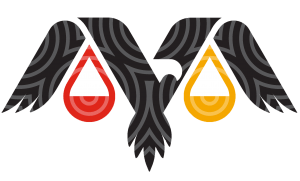Ms Calgaret was a kind soul and mother to her four children and her whole family. She was a proud Yamatji, Noongar, Wongi and Pitjantjatjara woman. Ms Calgaret loved her culture and enjoyed painting and writing.
Ms Calgaret had so much more life to live and love to give and wanted to do make positive contributions to her family and community.
Ms Calgaret died at Sunshine Hospital after being transferred from the Dame Phyllis Frost Centre prison in a critical condition in November 2021.
There are many questions about the events in the lead up to Ms Calgaret’s death that her family and VALS want answered. These questions need to be answered so that Ms Calgaret’s family can get justice.
Ms Calgaret had been eligible for parole since 28 December 2020 and was eligible for release on 22 February 2022; tragically she never made it out.
Ms Calgaret was born in the same year as the Royal Commission into Aboriginal Deaths in Custody handed down its 339 recommendations to end avoidable deaths in custody. Since then, there have been at least 500 Aboriginal deaths in custody.
VALS represents the families of many Aboriginal people who have died in custody – including, now, the relatives of two women who have died in the Dame Phyllis Frost Centre in the last two years. Many of the factors are repeated over and over: the lack of equivalent healthcare services, harsh bail and parole systems, over-policing of Aboriginal people, and poor oversight and accountability mechanisms in the justice system are common features when an Aboriginal person dies in custody.
The Andrews Government’s tough-on-crime agenda has led to Aboriginal women being the fastest growing demographic in Victoria’s prisons. They are often mothers and primary carers. They are often dealing with financial insecurity, homelessness, and health conditions. Many are victim-survivors of family violence. They needed support services, not a prison cell.
According to an analysis by The Guardian Australia in 2021, Aboriginal people who died in custody were three times as likely to not receive all required medical care compared to non-Indigenous people and Aboriginal women were less likely to have received appropriate medical care prior to their death compared to men. Statistics like this should have forced governments into action long ago – Ms Calgaret may still be here if they took this crisis seriously.
Quotes Attributable to Suzzane Calgaret, Ms Calgaret’s sister:
“I loved my sister. We were best friends and soulmates. She was my right arm, and I was her left.”
“My sister was a kind, caring and lovable person. She was a kind spirit, a loving soul. She was the one to give everything, she would give constantly. She’d spoil me rotten.”
“She loved her children so much, they were the loves of her life. She also loved her partner Zulli. She loved her friends and had a lot of friends. She was excited to see all of them when she got out.
“I found my sister collapsed in her cell before they took her to hospital. I am heartbroken that she has died.”
“My sister was meant to be out on parole.”
“We want answers.”
“Why did her crime make the headlines but she dies and it all goes unnoticed?”
“Guilt, trauma, grief – that’s our life at the moment.”
Quotes Attributable to Aunty Jenny Calgaret, Ms Calgaret’s mother:
“She was like an old mother hen type person. She had a kind heart, a kind soul, she was very caring. She was my rock in my family. She was the one who helped me.”
“She was always looking after the children in the family, driving everyone around. She was always there to lend a hand when someone needed help.”
“She was always laughing and smiling. That’s what I will remember when I think of her.”
“Ms Calgaret and her brother “Chum” loved The Adventures of Shark Boy and Lava Girl. He would call her lava girl and she would call him shark boy. They did the same with Maoi and Moana.”
“She was the person that kept our family together, kept it going. We can’t replace her. We will always miss her.”
Quotes Attributable to Nerita Waight, CEO of VALS:
“My soul aches for Ms Calgaret and her family. No one should die this way and no family should have to grieve for a mother, a daughter, a sister, a cousin this way. The State clearly hasn’t learned from past tragedies.”
“VALS will support Ms Calgaret’s family in their search for justice.”
“How many more Aboriginal women will die at the Dame Phyllis Frost Centre prison before we put rehabilitation and reintegration above punishment. Many of the Aboriginal women incarcerated are there due to distressing circumstances such as family violence, poverty and systemic racism, and rather than supporting them to be safe and successful in community we lock them away where they cannot be seen or heard.”
“The Andrews Government is spending billions of dollars on prison expansions and police so that it can lock up more and more of our people despite consistent evidence that it does not improve community safety. We urge them to seriously consider the recommendations we have made in relation to bail, sentencing and parole as part of the Inquiry into the Criminal Justice System”
“If we want to invest in communities then we should invest in communities, not prisons. Aboriginal people have survived 230 of colonisation because of our resilience, because of our ability to innovate and deliver innovative solutions for community that work and are more cost effective than prisons. If the State would invest in communities the way they do prisons, we would see meaningful change in society.”
NB: The family has requested that media use “Ms Calgaret” to refer to the deceased.

